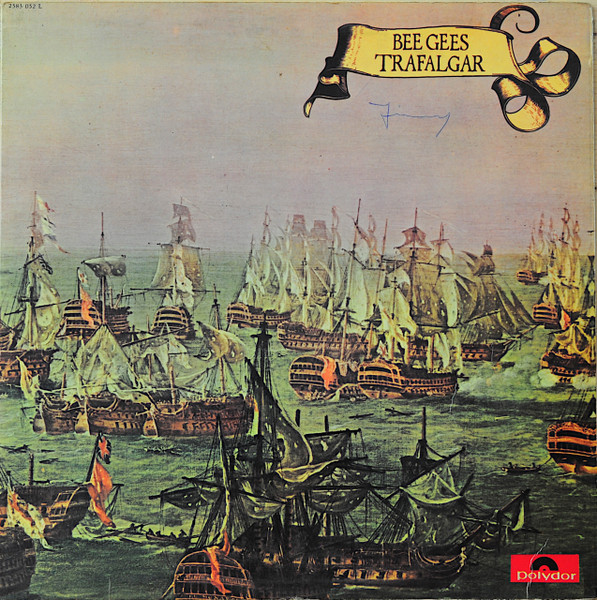Introduction

Bee Gees – Trafalgar: A Song Wrapped in Baroque Pop Mystery
The Bee Gees’ “Trafalgar” isn’t their most famous song, but it holds a unique place in their history. Here’s a glimpse into the song and the album it belongs to:
A 1971 Release: “Trafalgar” is the title track from the Bee Gees’ ninth studio album, released in September 1971 (US) and November 1971 (UK). This album marked a shift in the band’s sound, transitioning from their earlier psychedelic rock to a more orchestral and introspective style, later termed “baroque pop.”
Maurice Gibb Takes the Lead: While Barry Gibb is usually the band’s primary songwriter, “Trafalgar” was written and sung by Maurice Gibb, the eldest brother. This offered a glimpse into Maurice’s songwriting talents, which weren’t always as prominently featured.
Mysterious Lyrics and Historical Reference: The song’s lyrics are open to interpretation, filled with imagery of battles and warfare. While the title directly references the famous Battle of Trafalgar (1805), a British naval victory, it’s unclear if the song draws a direct parallel. The lyrics mention “ancient games” and “empty thrones,” creating a sense of melancholy and reflection.
Moderate Success and Critical Acclaim: Despite “How Can You Mend a Broken Heart” becoming the band’s first US No. 1 single from the album, “Trafalgar” itself didn’t chart as highly. However, the album as a whole received critical praise for its innovative orchestral arrangements and emotional depth. Some publications, like Robert Dimery’s “1001 Albums You Must Hear Before You Die,” even included “Trafalgar” on their prestigious lists.
“Trafalgar” might not be a mainstream Bee Gees hit, but it’s a fascinating example of their musical evolution and Maurice Gibb’s songwriting potential. The song’s enigmatic lyrics and historical reference leave a lingering impression, inviting listeners to unravel its meaning within the broader context of the band’s artistic shift.